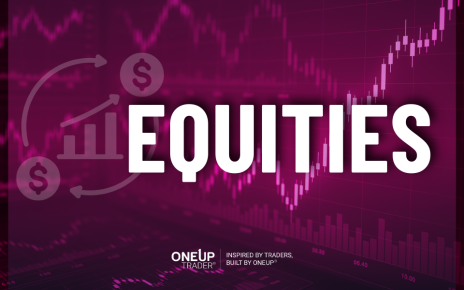- 10-year US Treasury yields maintained their multi-year highs.
- There was fear over the potential for a partial US government shutdown by the weekend.
- Investors are closely monitoring Friday’s personal consumption expenditure price index.
On Tuesday, US equities declined by more than 1% as 10-year Treasury yields maintained their multi-year highs. Investors grappled with the possibility of prolonged high interest rates and the resulting economic consequences.
US Treasury Yields (Source: Bloomberg)
Amid rising Treasury yields, the Dow experienced its most significant one-day percentage drop since March, and all three major US averages concluded the day with their lowest closing levels in over three months.
Investor anxiety heightened due to the potential for a partial US government shutdown by the weekend. Moody’s, a ratings agency, cautioned that this could harm the country’s credit rating. Meanwhile, benchmark 10-year Treasury yields reached their highest point in 16 years following the Federal Reserve’s recent hawkish long-term rate outlook.
Chief Investment Officer for Commonwealth Financial Network, Brad McMillan, commented, “We are still adapting to the elevated interest rates. There’s a growing belief that the market is overvalued, and there’s a sense that this situation is unsustainable, which is scaring away potential buyers.”
The CBOE volatility index, also called Wall Street’s “fear gauge,” closed at the highest level since May 25.
Investors closely monitor Friday’s personal consumption expenditures price index to gain fresh insights into the inflation scenario. This week will also bring other data, including information on durable goods, second-quarter gross domestic product, and remarks from Fed policymakers, including Chair Jerome Powell.
Elsewhere, European equities fell for the fourth consecutive day, with rate-sensitive technology and real estate stocks feeling the pressure from surging bond yields. Concerns about a slowing Chinese economy pushed a gauge of luxury stocks into bear market territory.
Global equity markets have been under pressure recently as the Federal Reserve and European Central Bank policymakers signalled their intention to maintain interest rates at higher levels for an extended period.
Meanwhile, the UK’s FTSE 100 remained subdued on Tuesday, with losses in defensive sectors like healthcare outweighing gains in financial stocks. According to a Reuters poll of economists, the Bank of England has completed its tightening cycle and is likely to keep the Bank Rate at 5.25% until at least July. However, some predict another rate hike later this year.
Richard Flax, Chief Investment Officer at Moneyfarm, emphasised the necessity for a more significant economic slowdown than what has occurred thus far.


